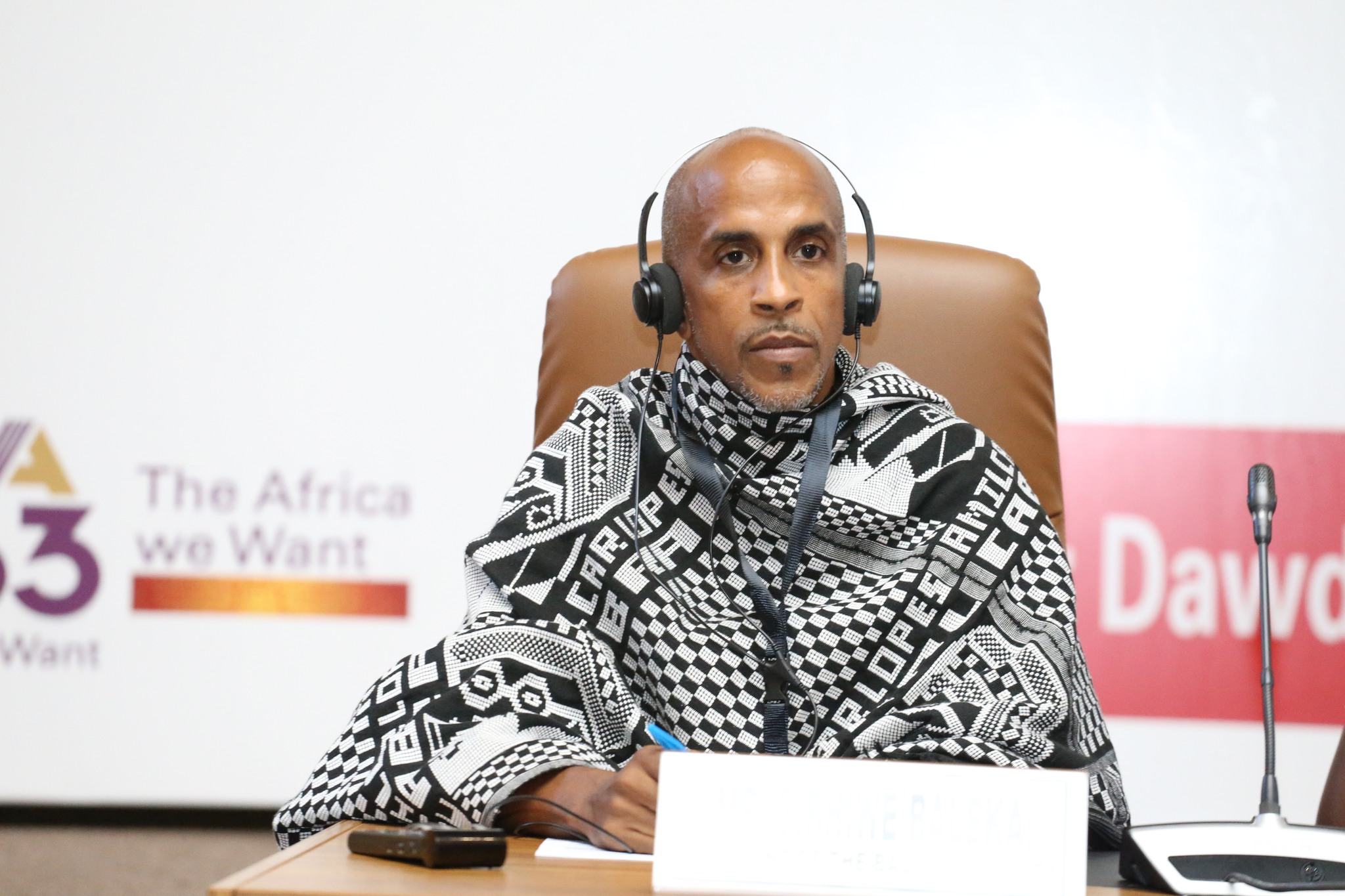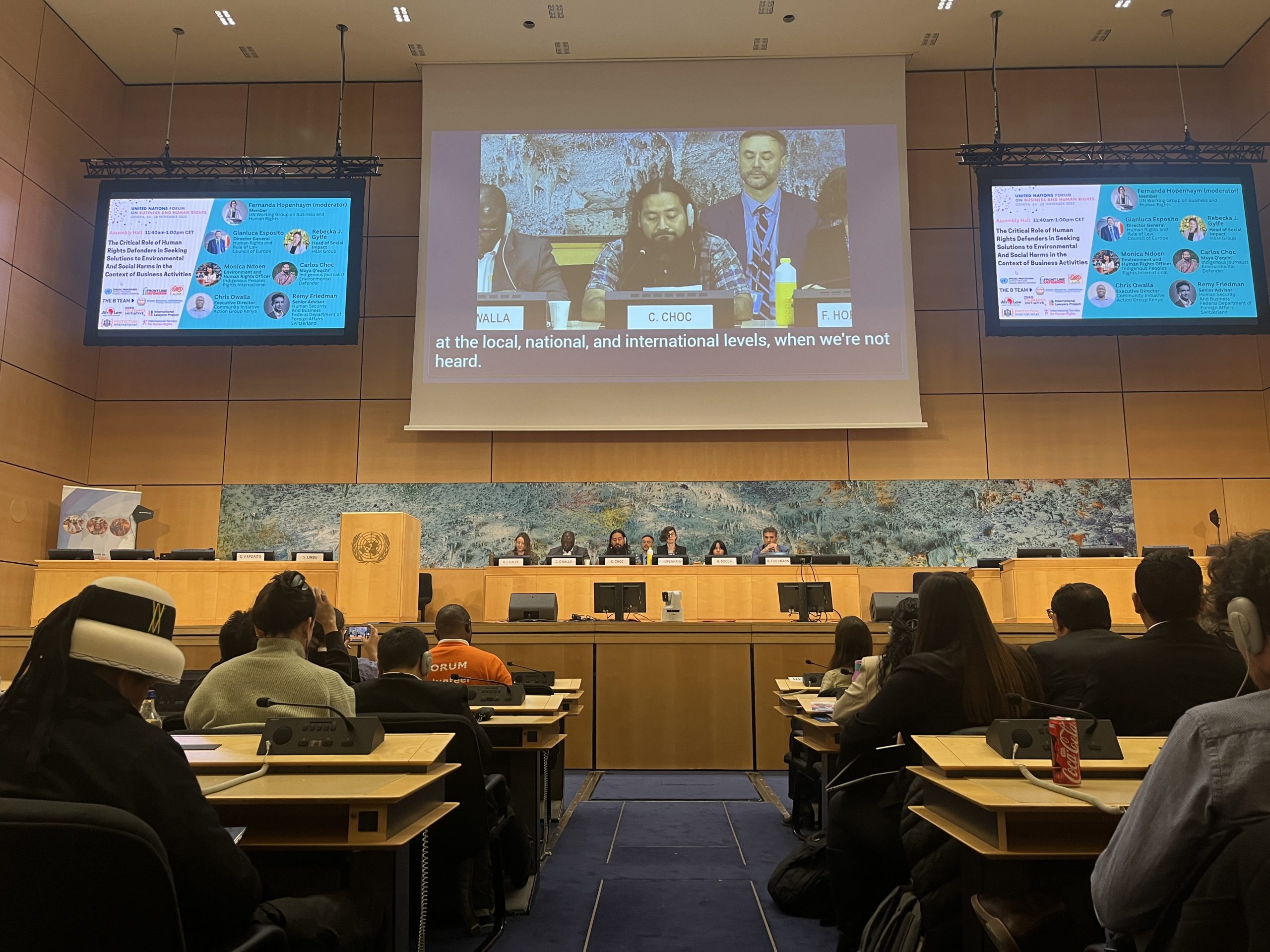Commissioner Litha Musyimi-Ogana, Chairperson of the Human Rights Committee and the Task Force on Indigenous and Minority Peoples in Africa, moderated the session and opened with a reminder of the historical roots of the transatlantic slave trade. She noted that the first slave ship left the West African coast in 1619, marking the beginning of over 500 years of slavery and its lasting legacy. She emphasised that understanding this history is essential to framing the conversation around reparations.
Commissioner Idrissa Sow, Chairperson of the Working Group on the Death Penalty, Extrajudicial, Summary or Arbitrary Killings and Enforced Disappearances in Africa, provided context for the discussion from the perspective of his mandate. He emphasised the timeliness and relevance of the reparations debate, especially in alignment with the African Union’s theme of the year. Recalling the 2001 Durban Conference on Racism, he pointed to the longstanding call for reparations for Africans and people of African descent.
According to UNESCO figures, more than 20 million Africans were captured and exported from the continent.
Idrissa Sow, Chairperson of the Working Group on the Death Penalty, Extrajudicial, Summary or Arbitrary Killings and Enforced Disappearances in Africa
Sow further highlighted that Africa endured four centuries of slave trade, followed by more than 100 years of colonisation and, even today, continues to experience exploitation through neo-colonial structures. He stressed that the economic challenges faced by African States are rooted in these historical injustices. Reparations, he argued, are not only justified but necessary. He also urged that the Saharan slave trade not be overlooked in favour of exclusive focus on the transatlantic trade. He recommended reparations be made through both monetary compensation and cultural restitution, including the return of stolen artefacts and a focus on memorialisation.
Ambassador Luvuyo Ndimeni, Adviser in the Cabinet of the Deputy Chairperson of the African Union Commission, warned against the erasure of the Durban Declaration and Programme of Action. He emphasised that this instrument contains essential references to racism, colonialism, and slavery and remains a critical foundation for reparations discourse. He cited paragraphs 157, 158, and 159 of the Declaration, which explicitly address reparations and acknowledged the pivotal role of historically Black universities in furthering this agenda. He also underscored the importance of healing and memorialisation, calling for increased collaboration between African nations and countries from which enslaved Africans were taken.
We need to start finding collaborative work between the countries where the slaves were shipped out of the continent.
Ambassador Luvuyo Ndimeni, Adviser in the Cabinet of the Deputy Chairperson of the African Union Commission
Henrietta Ekefre, of the Africa Judges and Jurists Forum and the Africa Reparations Programme, emphasised the need to keep the reparations dialogue alive. She drew attention to the lingering effects of apartheid and systemic injustice, arguing that historical wrongs continue to have direct and contemporary consequences. She asserted that legal proceedings should be pursued to actualise reparations.
Crimes against humanity, as defined under Article 29 of the Rome Statute, have no statute of limitations. There is no timeframe within which these injustices become too old to be addressed.
Henrietta Ekefre, Africa Judges and Jurists Forum and the Africa Reparations Programme
Ekefre called for a comprehensive reparations framework that includes a formal apology, repatriation support for those wishing to return to Africa, investment in Indigenous communities, cultural and institutional rebuilding, eradication of illiteracy, ecological restoration, and economic development initiatives.
Siphiwe Baleka, Head of Balanta Society in the USA and representing the African Diaspora, spoke about the personal and collective impact of enslavement, colonialism, and continued marginalisation of people of African descent. He traced the origins of these harms to a war declared by Pope Nicholas V in 1452, leading to the military and spiritual justification for the invasion, capture, and trafficking of Africans.
The African Commission must pass a resolution on the Afro-descendants’ right of return, and the African Union must develop a comprehensive Sixth Region citizenship policy.
Siphiwe Baleka, Head of Balanta Society in the USA
Dr. Felipe Naguera, Coordinator of the Caribbean Pan-African and Indigenous Movement, offered a historical and forward-looking perspective on the reparations agenda. He reflected on the enduring legacy of the Pan-African Congress, a historic platform that has long served as a rallying point for global African solidarity and the demand for justice. Naguera emphasised the critical need to build on this legacy to confront the continuing injustices faced by Africans and people of African descent. He underscored that the moment presents a significant opportunity to pursue comprehensive reparative justice that protects and empowers African children and communities across the diaspora. In doing so, he called for deeper unity among Pan-African actors and the development of strong political and legal frameworks that ensure historical redress, cultural restoration, and intergenerational healing.
Dr. Catherine Namakula, a member of the UN Working Group on People of African Descent, addressed the convergence between the African Union’s 2025 theme and the United Nations Declaration on the Rights of People of African Descent. She emphasised that the challenges faced by Afro-descendants are not isolated to one continent or region, but form part of a systemic global struggle rooted in the legacies of slavery, colonialism, and racial discrimination. Namakula highlighted the importance of harmonising legal and policy frameworks at the global, continental, and regional levels to ensure meaningful protection and justice for people of African descent. She encouraged the African Union and its institutions to work closely with international mechanisms to build synergies, promote accountability, and advance the full spectrum of rights for Afro-descendants worldwide.
Author
Adélaïde Etong Kame
Adélaïde has a Master in International Law and Relations from the University of Clermont-Ferrand. Adélaïde worked with indigenous people and minorities in Mauritania for better protection of their rights, especially victims of slavery. Previously, she advocated for the rights of women in Poland and Macedonia as well as the advancement of freedom of expression in Central Africa.
Article also available in




